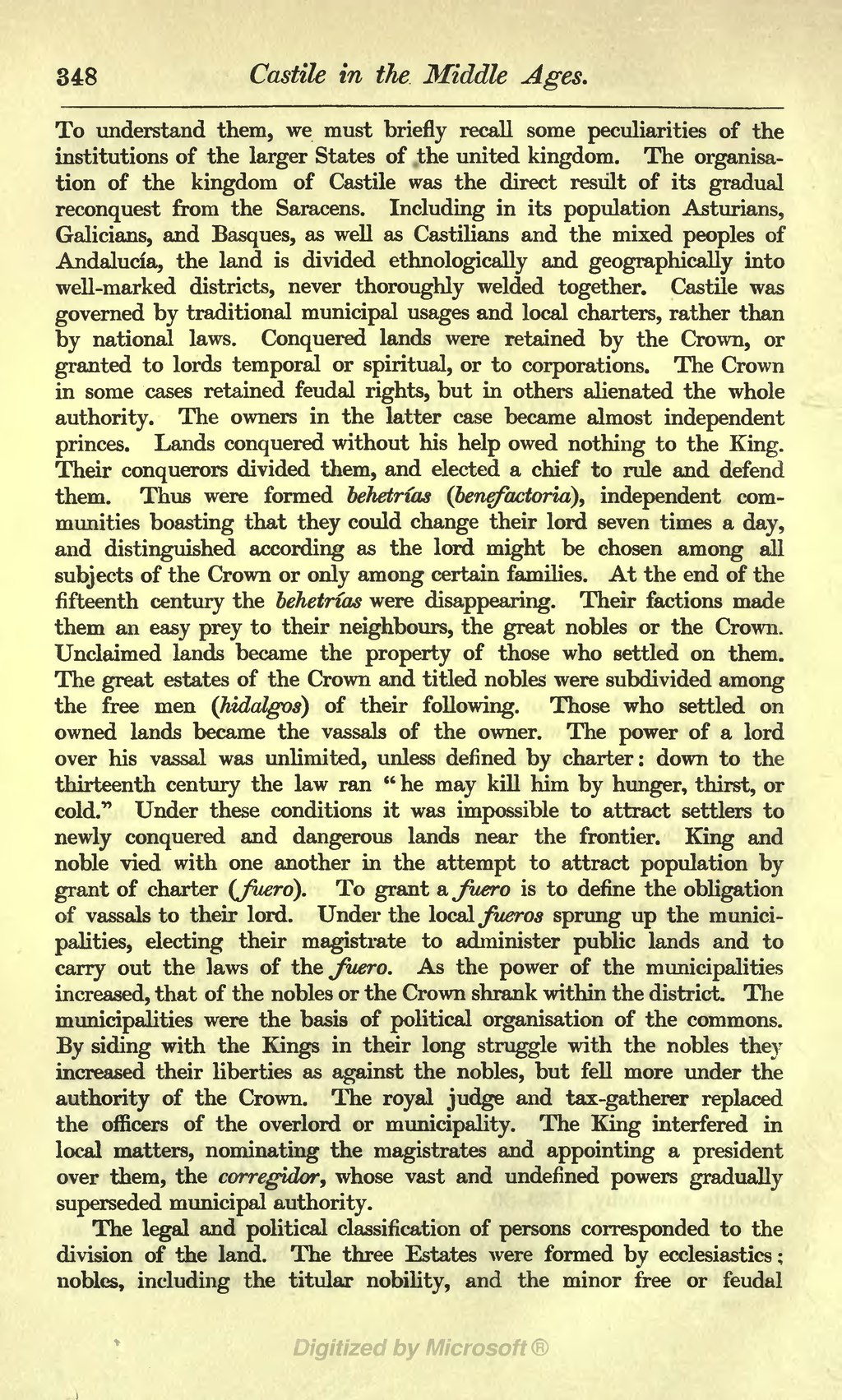To understand them, we must briefly recall some peculiarities of the institutions of the larger States of the united kingdom. The organisation of the kingdom of Castile was the direct result of its gradual reconquest from the Saracens. Including in its population Asturians, Galicians, and Basques, as well as Castilians and the mixed peoples of Andalucia, the land is divided ethnologically and geographically into well-marked districts, never thoroughly welded together. Castile was governed by traditional municipal usages and local charters, rather than by national laws. Conquered lands were retained by the Crown, or granted to lords temporal or spiritual, or to corporations. The Crown in some cases retained feudal rights, but in others alienated the whole authority. The owners in the latter case became almost independent princes. Lands conquered without his help owed nothing to the King. Their conquerors divided them, and elected a chief to rule and defend them. Thus were formed behetrias (benefactor ia), independent communities boasting that they could change their lord seven times a day, and distinguished according as the lord might be chosen among all subjects of the Crown or only among certain families. At the end of the fifteenth century the behetrias were disappearing. Their factions made them an easy prey to their neighbours, the great nobles or the Crown. Unclaimed lands became the property of those who settled on them. The great estates of the Crown and titled nobles were subdivided among the free men (hidalgos) of their following. Those who settled on owned lands became the vassals of the owner. The power of a lord over his vassal was unlimited, unless defined by charter: down to the thirteenth century the law ran "he may kill him by hunger, thirst, or cold." Under these conditions it was impossible ta attract settlers to newly conquered and dangerous lands near the frontier. King and noble vied with one another in the attempt to attract population by grant of charter (fuero). To grant &juero is to define the obligation of vassals to their lord. Under the local fueros sprung up the municipalities, electing their magistrate to administer public lands and to carry out the laws of the Juero. As the power of the municipalities increased, that of the nobles or the Crown shrank within the district. The municipalities were the basis of political organisation of the commons. By siding with the Kings in their long struggle with the nobles they increased their liberties as against the nobles, but fell more under the authority of the Crown. The royal judge and tax-gatherer replaced the officers of the overlord or municipality. The King interfered in local matters, nominating the magistrates and appointing a president over them, the corregidor, whose vast and undefined powers gradually superseded municipal authority.
The legal and political classification of persons corresponded to the division of the land. The three Estates were formed by ecclesiastics; nobles, including the titular nobility, and the minor free or feudal
